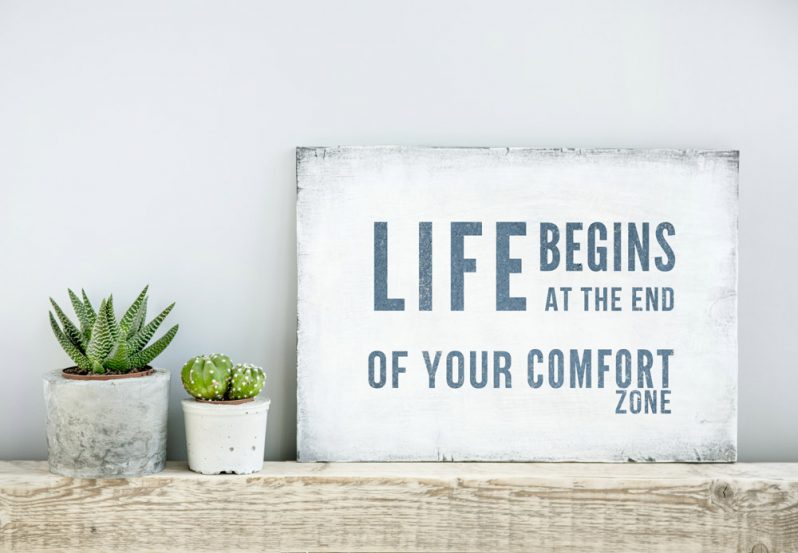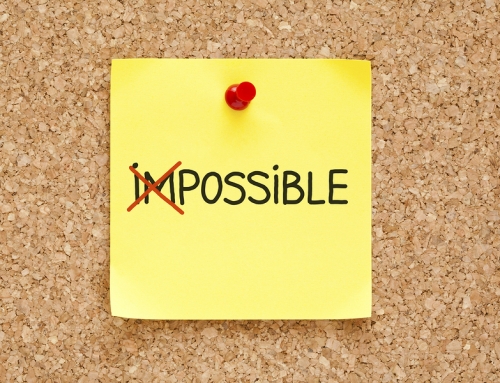The 7 Questions to Ask to Embed an Entrepreneurial Mindset into your Team
Being entrepreneurial for me has always been about two things, and two things alone – boldness and creativity.
Every successful CEO or young entrepreneur I have ever met has these two qualities in abundance.
Put another way, they come up with crazy ideas, because boldness, by definition, has a hint of the impossible, even at times, madness about it.
The Copernican theory, flying to the moon, the iPhone, the Kindle (still the most magical device!), Japan beating South Africa in the recent rugby world cup in the very last seconds of the game and defying every iota of conventional wisdom, all initially perceived as impossible.
But stretching for the impossible is what separates the real winners from the also rans!
The most successful organisations are able to embed this entrepreneurial mindset into the fabric of their culture and deliver a consistent level of performance excellence, which is a cut way above that of their competitors.
Unfortunately, traditional organisational culture often nurtures a style of management control that stifles the basic tenets of this entrepreneurialism.
Creativity is sacrificed on the alter of efficiency and predictability; a safety-first mindset takes precedence over the risks and potential opportunities inherent in challenging fundamental assumption and ‘the way we do things around here.’
‘A drive to be creatively vulnerable’
However, transformative CEO’s and successful entrepreneurs understand that the urge to build new organisational value requires the need to embrace the fear of the unknown and not be seduced by the comfort of the status quo.
They build a healthy team culture that invites proactive contribution that values constructive argument and the motivation to think differently, to suggest ideas that, might at first glance, appear ridiculously ambitious and impossible.
As Arthur C. Clarke, the Sci-fi author once said:
‘The very best ideas often evoke three stages of reaction:
It’s completely impossible
It’s possible but not worth doing
I said it was a good idea all along’
So what is it about those CEO’s and entrepreneurs that enable them to embed a creative, entrepreneurial mindset in the team and confront the self-restricting limitations of the status quo?
In short, they possess one quality that many people construe as a weakness but which, in reality, is their greatest strength – they balance a fine understanding of their team strengths with a drive to be creatively vulnerable.
This is the paradox of high creative engagement; it requires a level of collective drive and passion to endure the discomfort and uncertainty required to grasp breakthrough opportunities and deliver exceptional outcomes.
One of my recent and most enjoyable assignments was spending an extended period with a client whose mantra was ‘we create great challenges.’
Nothing inspires more than a collective call to arms to attempt the design and delivery of product or service which others have either not thought of, or as more often is the case, have been too afraid to try.
Now we come close to the heart of the entrepreneurial mindset conundrum.
We may talk up the need for boldness and creativity, but too often, fear and ignorance inhabit the recesses of our organisational culture, predominately influencing our thought process and collective behaviour.
But why should this be so?
Brene Brown in her book, ‘Daring Greatly’, offers a powerful insight:
‘It is easier to live with disappointment than risking excitement and feeling disappointed’
We would prefer to suffer the frustration of not realising our true potential than suffer the public disappointment and personal embarrassment should our initiative fail – something a real entrepreneur would value highly as a successful and beneficial learning experience.
The fear of failure – and its detrimental consequence – often restricts the desire to suggest or execute a new and bold initiative.
Some years ago, managing a customer engagement programme for a government client, the desire to remain within the comfort zone was described as ‘the gravitational pull to average consistency’, a virus so insidious and contagious that it had the power to restrict everyone’s capacity to excel.
Mediocrity equates with safety and comfort; there will be no mistakes made, no bold initiatives in this working environment, but neither will we be inspired by a statement, which challenges our fundamental beliefs nor a bold act that defies our imagination.
Being bold, creating new challenges that inspire is to understand that mistakes will be made, blind alleys will be encountered, failures experienced.
Indeed, someone once described true leadership as ‘the willingness to embrace the failures of others.’
The reason the entrepreneurial mindset does not predominate is that fear restricts the capacity to make the bold suggestion and attempt the step into the unknown.
Once this fear is confronted and allayed, then we have a powerful foundation for inspiration, breakthrough thinking and competitive excellence.
Transformative CEO’s and successful entrepreneurs understand this and nurture the passion, competence and curiosity to make these exciting possibilities a reality.
They also ask these 7 questions:
- What would we do differently if we knew we would be successful?
- What is stopping us making that bold move now?
- Will this bold move connect to our past and provide an inspirational link to our future?
- Will it stimulate others to question, air opinions, and seek out the alternative perspective and, in so doing, encourage new leaders to step forward?
- Will it enhance our brand, that concept we hold most dear in the mind of our customers?
- Will we be prepared to show empathy and not seek blame i.e. embrace the potential learning opportunities of failure ensuring we provide a supportive, safety net should success prove elusive?
- Finally, will we demonstrate the leadership capability to instil the collective resilience and belief that our success is probable and not merely possible?
Asking these 7 questions will help you appreciate how entrepreneurial you are, and more importantly, how more entrepreneurial you and your team can truly become.
As the German writer Goethe once said:
‘Boldness has power, genius and magic in it.’
Embedding an entrepreneurial mindset is a core sub-theme to our Restless Inquiry® approach to building high team performance and developing powerful leadership skills and influence.







Leave A Comment